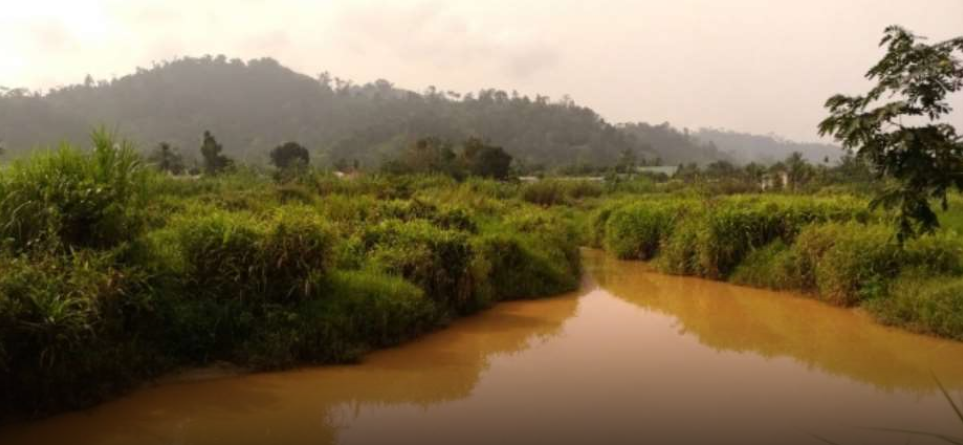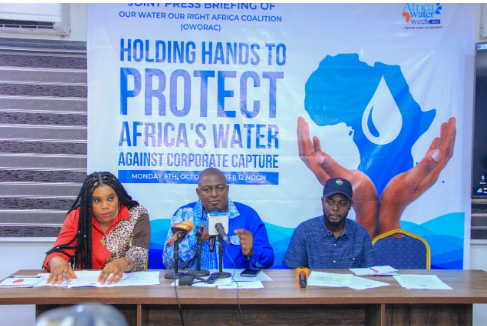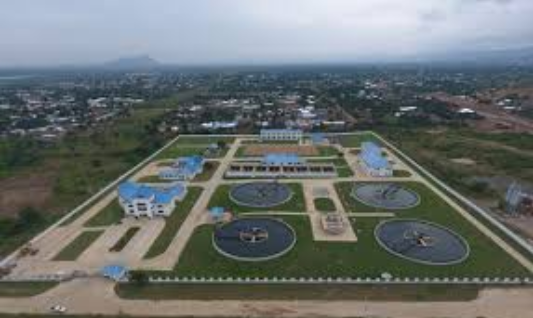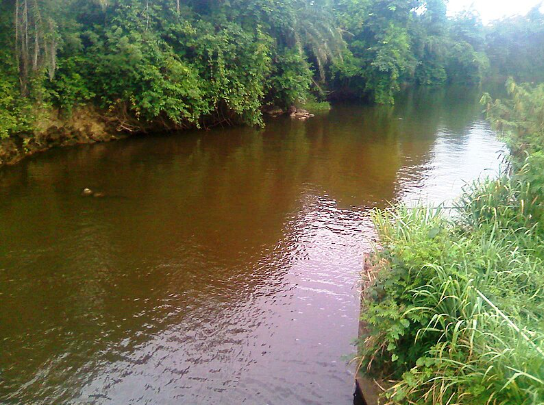By Jemimah Wellington, JKNewsMedia Reporter
ABENA MENSAH remembers the days when the Pra River flowed clear, offering her community both clean water and a steady source of food.
But now, the river’s once-blue waters run thick with mud and chemicals, a casualty of illegal mining activities that have swept across her village in Ghana’s Western Region.
For Abena, and countless others like her, life has become an endless struggle for survival as their water sources, farmland, and health are slowly being poisoned by galamsey—illegal mining.
“This used to be the heart of our village,” Abena says, standing at the edge of what was once a lifeline for her family. “Now, it’s killing us.”
Abena’s story now reverberates throughout Ghana, where the rapid rise of illegal mining, fueled by greed and political corruption, has devastated communities.

Rivers like the Densu, Birim, Ankobra, and Tano have all been tainted by mercury and cyanide, toxic chemicals used to extract gold.
The Our Water Our Right Africa Coalition (OWORAC) describes this devastation as nothing short of an ecological disaster that threatens the very foundation of Ghanaian society.
“We drink the water, we bathe in it, but we know it’s dangerous,” says Kofi Badu, a local fisherman from the Eastern Region.
“Fish are dying, and even those we catch are too small or sickly to sell. How do we feed our families?”

For farmers like Kwame Yeboah, the crisis is more than just a loss of income. His once-fertile land, located along the banks of the Birim River, now yields nothing.
The mercury from upstream mining sites has contaminated the soil, leaving Kwame and other farmers desperate.
“Our land is dead,” he says with visible anguish. “There is no way to farm here anymore.”
The domino effect of illegal mining has also triggered a public health crisis.
Medical professionals in Bibiani-Anhwiaso-Bekwai District have raised alarms over the high levels of mercury found in pregnant women living near contaminated rivers.
Several studies reveal that mercury has passed from mothers to their unborn children, causing birth defects.
“These children are being born with problems that will affect them for the rest of their lives,” says Dr. Adjoa Osei. “We are witnessing a silent epidemic that could devastate the next generation.”
The Ghana Water Company Limited (GWCL) has shut down several water treatment plants due to the contamination of water sources.

The closures have left many communities, especially in the Ashanti and Eastern regions, without access to potable water.
For those who can find clean water, the rising costs have made it almost unattainable.
“If this continues, by 2030 we may have no choice but to import water,” warns George Afful, an environmental expert.
“That’s unthinkable for a country like Ghana, where water should be abundant.”
Despite the destruction galamsey has brought, efforts to curb the practice have largely fallen flat.
The government, under growing scrutiny, has been accused of turning a blind eye to illegal mining, particularly as high-ranking officials are alleged to have ties to the miners.
An Inter-Ministerial Committee, set up to investigate the crisis, has pointed to the involvement of influential political figures in protecting galamsey operations.
“The government is more concerned with winning the next election than saving our rivers,” says activist Yaa Amankwah, who has been arrested twice for participating in anti-galamsey protests. “Our people are being silenced while our lands are destroyed.”
OWORAC and other rights groups have called for an immediate halt to all mining activities near water bodies.
They argue that the government must prioritize the health and well-being of its citizens over political interests.
As more communities face the grim reality of contaminated water and dying ecosystems, the coalition is pushing for tougher regulations and better enforcement of existing laws.
“We cannot sit back and watch our future being destroyed,” says Nana Addo Kuffour, a local chief from Akyem Abuakwa. “We must act now, or there will be nothing left for our children.”
Beyond the environmental and health crises, galamsey has also brought deep social divisions.
Young men, many of whom have turned to illegal mining out of desperation, find themselves at odds with the older generation, who rely on traditional farming and fishing.
This generational rift threatens to destabilize already fragile communities, as the struggle for survival pits neighbor against neighbor.
In the words of Abena Mensah, “We are losing everything—our water, our land, our way of life.”
The fight to stop galamsey is not just a battle for Ghana’s rivers and forests; it’s a fight for the future of its people.
Without decisive action, the nation faces a grim reality where access to clean water and fertile land may become a luxury only a few can afford.
OWORAC, backed by a coalition of African rights organizations, continues to press for stricter mining regulations, greater accountability from the government, and reparations for the communities whose lives have been upended by illegal mining.
They emphasize that the fight for environmental justice is not only about preserving the land but ensuring that every Ghanaian has the basic human right to clean water, a healthy environment, and a sustainable livelihood.
For now, the people of Ghana are left to wonder how long they will have to fight for something so basic—clean water to drink and land that can sustain life.
As Kofi Badu sums it up, “This is our land, but right now, it feels like we are being poisoned on it every day.”





